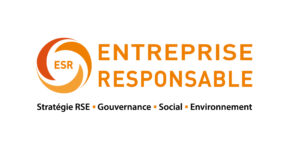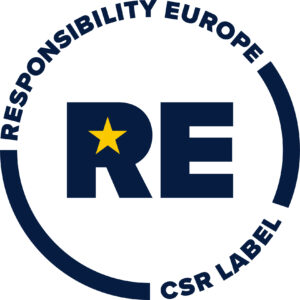ODL is committed to implementing the climate policy and goals set out at the Paris Climate Conference. This means that achieving net-zero greenhouse gas emissions by 2050 will be the norm and a condition for our insurance and financial aid products.
In order to uphold responsible and sustainable business practices, which respect the environment, human rights, and contribute to the fight against corruption, money laundering and the financing of terrorism, ODL also supports:
- United Nations Sustainable Development Goals, especially goal 9, 14 and 15;
- Multilateral environmental standard and agreements, including the European Green Deal
- The OECD Guidelines for Multinational Enterprises
- World Bank Safeguard policies and IFC performance standards
- The Regulation (EU) 2019/2088 of the European Parliament and of the Council of 27 November 2019 on sustainability-related disclosures in the financial services sector (SFRD)
- The Directive 2013/34/EU of the European Parliament on the disclosure of non-financial and diversity information by certain large undertakings and groups
- The Regulation (EU) 2020/852 of the European Parliament and of the Council of 18 June 2020 on the establishment of a framework to facilitate sustainable investment, and amending Regulation (EU) 2019/2088 (Taxonomy)
- The Guidelines regarding the disclosure of sustainability reports by the businesses (CSRD)
- The environmental and social goals and commitments of the Luxemburgish Government
In addition to the OECD Recommendation of the Council on Common Approaches for Officially Supported Export Credits and environmental and social due diligence, the Revised Recommendation of the Council on Bribery and Officially Supported Export Credits and the Recommendation on Sustainable Lending Practices and Officially Supported Export Credits, ODL has adopted in April 2022 an ESG procedure, in cooperation with its traditional client base. This procedure is applicable to all insurance and financial support applicants, as well as insurance requests taking into consideration governance, environmental and social criteria, and sustainable financing. The procedure is reviewed on an annual basis and will gradually reduce greenhouse gas emissions within the projects ODL supports.
Moreover, ODL supports the objectives outlined in the Council Conclusions on export credits approved on the 15th of March 2022. In accordance with these conclusions, ODL will not provide officially supported export credits to projects in the fossil fuel sector[1] except in limited and clearly defined circumstances that are consistent with a 1.5°C warming limit and the goals of the Paris Agreement:
- Activities or sectors that use fossil fuels for production, including but not limited to heavy industry with a need for high temperature (e.g. cement and steel production) or the transport sector;
- Maintenance or other services intended to ensure the continued safe operation of fossil fuel installations or infrastructure, thus maintenance dredging works that are essential in keeping the ports and their access channels safe and navigable;
- Infrastructure works, such as the construction or improvement of a road network that will not be used exclusively for the fossil fuel energy sector;
- the exploration, production, transport, storage, refining and distribution of the fossil fuels needed to ensure the country’s energy security, provided that they are part of an energy transition strategy aimed at reducing greenhouse gas emissions and integrating renewable energies.
The National Institute for Sustainable Development and Corporate Social Responsibility (INDR) promotes CSR and offers full support to companies. As a centre of expertise, it undertakes a normative role, distributes knowledge on CSR and collaborates with the main players in sustainable development. Link : https://indr.lu/fr.
ODL has been awarded the ESR (Entreprise Socialement Responsable) Label by INDR for a period of three years. This prestigious distinction, granted following a rigorous audit, recognises our ongoing commitment to sustainable development and responsible business practices.


As part of its ongoing commitment to advancing its CSR and ESG policy, ODL has joined the National Business and Human Rights Pact, which it officially signed on July 2, 2025, in the presence of Mr. Xavier Bettel, Minister for Foreign and European Affairs, Defense, Cooperation, and Foreign Trade.
Through this commitment, ODL demonstrates its willingness and determination to implement the United Nations Guiding Principles on Business and Human Rights within its operations and its value chain.
Accordingly, ODL undertakes to:
- raise awareness among its staff, at all levels of its internal governance structure, as well as among its stakeholders, about the protection of human rights in business,
- appoint a human rights officer within its organization, who has the authority, skills, and resources necessary to fulfill his/her duties,
- train relevant employees on business and human rights,
- develop governance tools to identify risks and prevent human rights violations, notably by relying on the Guiding Principles,
- ensure that one or more grievance mechanisms are in place to address reported cases of human rights violations, inform those concerned, and cooperate with the competent public authorities,
- publish an annual report, on the dedicated website, on the measures implemented, communicate this report to stakeholders, and submit it for qualitative and quantitative of the Working Group on Business and Human Rights, duly supported by external expertise.

To know the legal framework on sustainability and the financial aid available to finance your sustainable investment projects, please visit https://www.houseofsustainability.lu/.
[1] Namely projects of exploration, production, transportation, storage, refining, distribution of coal, crude oil, natural gas, and unabated power generation.